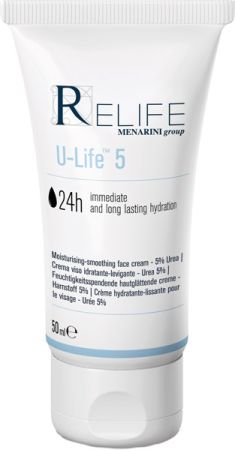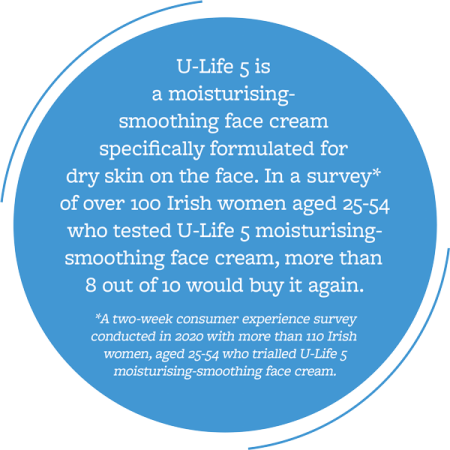Tricks of the trade


Eczema affects a large proportion of women in Ireland. Whilst the symptoms for eczema are most commonly thought of just as dry patches and itchiness, what is often forgotten is the disheartening feelings that come along with having eczema and psoriasis or any sensitive skin condition.
Eczema can bring with it frustration and upset: a constant need to watch how you wash your clothes, the type of materials you can wear and the products you can use in the shower or to moisturise your skin. There can be a constant desire to hide flare ups of eczema with long sleeve tops or jeans, which can in turn aggravate the condition. It is a catch 22. Do you let the sunlight and air at your skin? Or do you hide the flare ups? A flare up can look different on each person, some will experience mild redness, other will develop cuts and/or burn-like patches. Each eczema sufferer is different.
Masking facial eczema can be more difficult. There is no straightforward way of hiding this when you have a flare up. Stress-induced eczema is often the culprit of facial eczema. I suffer from stress-induced facial eczema, and as a wedding make-up artist, I see many brides suffering from it as they approach their big day. Over the years, I have discovered many tips and tricks for disguising flare ups and making my skin look its best. This has come from years of dealing with personal flare ups, and also from helping other women look their best on one of the biggest days of their lives. You shouldn’t fear make-up when you have a skin condition, you just have to find what works for you.
Kate shares her top tips for applying make-up when you have eczema or sensitive skin.
- Your skincare is a key consideration before applying your make-up. Make sure to do your full skincare routine and give it 10 minutes to sink into your skin before starting your make-up. This will keep your make-up fresher looking for longer.
- Moisture is key. Use hydrating liquid foundations and avoid anything too mattifying. You want to keep your skin looking dewy and fresh, and mattifying foundations will dry out your skin. Usually, foundations that state '24-hour wear' will be more mattifying. These are not your friend.
- Liquid illuminators under your foundation will fake hydration for you and give you that instant glow and freshness that you crave when you have naturally dry skin.
- Steer clear of too many powder products. Instead, use cream or liquid bronzers and blush to keep the skin looking fresh and hydrated. These will also settle far better into the skin as powder bronzers and blushes can emphasise texture; liquid and cream products will help to disguise it. Using your fingers for applying these will work the products into your skin better and give a more natural look.
- Avoid using setting powders over the skin. These will cover any benefits offered by the illuminating products. Try using a setting spray to increase the longevity of your foundation instead of setting powder.
- In areas of severe dryness of texture, less is more. Don’t apply lots of foundation to cover the texture as this will actually emphasise it more. Apply lighter layers of foundation and concealer. Whilst the texture will not completely disappear, this will reduce the discolouration and disguise it as best as possible. Remember, it is impossible to use make-up to make texture disappear. The more you apply, the more you will emphasise texture.
- If you have a flare up, and your make-up is just not sitting right, why not try a statement red lipstick to draw attention away. This will immediately increase your confidence.

Here are some other important steps I have learned along the way, not only from my work, but also from my own journey with eczema.
- Consistency is key. Maintaining a skincare routine will help to keep your eczema or any sensitive skin conditions at bay. Consistency of care every morning and evening will make your make-up application easier.
- Skin omegas are great for healing your skin from within. Fish oils or skin omegas are great for dry skin conditions, and over a period of consistent use, you will notice a difference.
- When it comes to wearing fake tan, from someone who suffers from an extreme dry skin condition, you learn quickly that, generally, longwearing tans or spray tans will aggravate your skin. For me, the tan ‘rejects’ from certain areas and you are left with patches. I have found that instant tan is your friend. It sits on top of the skin making patches easier to cover, rather than sinking into the skin and flaring your eczema. Gradual moisturisers with tan are far better to use.
Trying to balance any sensitive skin condition and make-up can be tricky but it should not be feared. Embrace your skin, implement some of the tips above and remember that consistency is the most important aspect to your skincare. Once you have your routine locked down, your make-up routine will fall into place. Find the right products for you and stick with them.